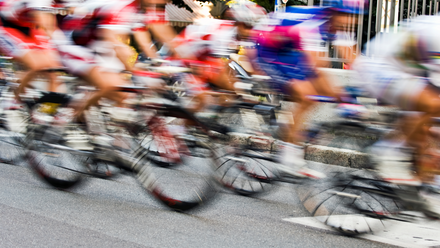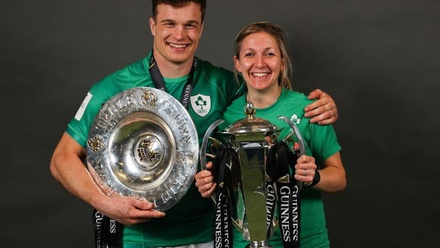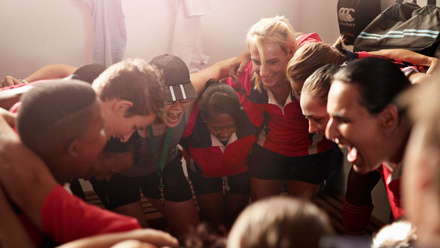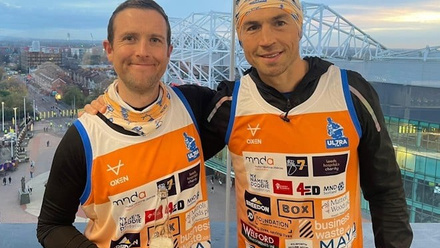Dr Alan Kennedy speaks to three Sport and Exercise Nutrition Register (SENR) dietitians about the specific qualities dietitians can bring to the register.
One of the many advantages of a career in dietetics is the sheer diversity of professional practice options. Whilst these options are well defined and subscribed within clinical practice settings, a lesser explored path for dietitians is sports nutrition practice.
Currently, most registrants on the SENR come from non-dietetic backgrounds. Typically, these registrants have undergraduate and postgraduate degrees in sport and exercise science, human physiology or human nutrition, supplemented by an additional postgraduate qualification in sports nutrition from SENR-accredited Higher Education Institute (HEI) programmes. Such registrants make excellent practitioners, with many currently working at the very highest level of performance nutrition in the UK and abroad, supporting the performances of elite athletes at Olympic Games and other major sporting competitions and events.
However, for the considerably smaller cohort of SENR members who are registered dietitians, anecdotal evidence suggests their education and training confers an advantage towards effective applied sports nutrition practice.
To explore this further, I spoke with two dietitians currently engaged in sports nutrition practice, Ailis Robertson and Dr Nathan Lewis, and a senior lecturer in sport and exercise nutrition, Dr Lauren Duckworth.
Ailis is Performance Nutritionist at the Sport Scotland Institute of Sport (SIS), and Nathan is Lead Performance Nutrition Scientist at the UK Sports Institute (UKSI). Both are HCPC-registered dietitians and SENR Practitioner Registrants, and have vast experience in both clinical dietetics and elite sport. In addition, in their professional settings, both have trained and mentored many early-career dietitians and sports nutrition practitioners alike.
Lauren is Course Director of Postgraduate Sport and Exercise Science Studies at Leeds Beckett University, an SENR Academic Associate, and has a distinguished career in sports nutrition research and teaching. She is Course Leader for the SENR-accredited MSc and Postgraduate Certificate in Sport and Exercise Nutrition within the School of Sport at Leeds Beckett.

Alan Kennedy (AK): Ailis, can you tell us about your current role as a performance nutritionist at the Sport Scotland Institute, and the multidisciplinary nature of your professional environment?
Ailis Robertson (AR) : My current role is similar to that of a clinical dietitian, where I deliver evidence-based, bespoke nutrition support. I work as part of a wider MDT to bring about the best outcome for the athletes I work with. Whatever the environment, the principles of working as a dietitian, or performance nutritionist, are underpinned by the same pillars of good practice.
My role as a performance nutritionist involves working in many different teams, which include sports medicine, physiology, psychology, physiotherapy and physical preparation, and with sport-specific coaches, where communication skills and the ability to work effectively with others is essential. To be able to work together, an understanding of your own scope of practice, as well as that of other team members, is key.
AK: Nathan, in your opinion, does dietetic training confer any advantages to effective sports nutrition practice within this multidisciplinary setting in particular?
Nathan Lewis (NL): Dietetic training, and associated clinical training, leads to dietitians operating more effectively within the sports science and medicine team. Indeed, through their dietetic training, and most notably hospital work, dietitians recognise the value and importance of working in an interdisciplinary manner, engaging with those of greater experience and knowledge, and having team-orientated objectives.
In my experience, practitioners from sports science backgrounds, especially PhD-level training, tend to gravitate towards working in silos. They are largely trained and experienced in self-directed learning, and they ‘just get on with it’. Consequently, they tend to have more blind spots and are slower to integrate into a team. I find dietitians are more aware of what they don’t know, having worked with more experienced colleagues across various clinical fields.
AK: Lauren, from your position as an educator, can you tell us how your university enables dietitians to become members of the SENR, and what are your reflections on their attributes as students of sports nutrition?
Lauren Duckworth (LD): We have had many enquiries over the years of delivering our successful SENR-accredited MSc in Sport and Exercise Nutrition from dietitians and those working in clinical practice. As a response, we created and launched our Postgraduate Certificate in Sport and Exercise Nutrition for Healthcare Practitioners in 2016. This course is delivered over weekends throughout the year to facilitate study alongside working patterns. Upon completion, students are eligible to apply for Graduate SENR status and practise as sport and exercise nutritionists.
In leading this course, we have found these students with a healthcare practitioner background to have not only an excellent grounding in nutrition and food science but also an understanding of working with a client and an appreciation of how to transfer their knowledge into practice.
AK: Ailis, are there any other specific attributes of dietetic training that contribute to effective applied sports nutrition practice?
AR: When working with athletes, communication skills are key to understanding training demands, along with how social, emotional, environmental and cultural factors influence individual nutrition habits. Whilst many athletes are highly motivated with regard to their nutrition, motivational interviewing – a key skill within dietetics – is a useful tool in understanding more about where an athlete is in their nutrition journey and how to best support and work with them.
Furthermore, having experience in many areas of clinical dietetics is helpful in being able to recognise when a clinical issue may be present, such as low blood ferritin, disordered eating, disrupted menstrual cycle or GI symptoms, and how to take this forward. Drawing on clinical skills such as understanding blood reports helps to understand the physiology and biochemistry of the athlete, which helps to provide bespoke nutrition support options.
AK: Lauren, how do you see the professional landscape developing for sports nutrition and the potential for dietitians to work within the specialty?
LD: It is becoming increasingly recognised by athletes, coaches and professional bodies that nutrition plays a major role in achieving success in the maintenance of both health and sport performance. As such, there is a high demand from sporting teams, professional bodies and health councils to have appropriately qualified personnel and continued professional development aligned to the regulatory body of sport and exercise nutrition.
We’ve had over 90 students graduate from our Postgraduate Certificate in Sport and Exercise Nutrition programme, and these students have gone on to embed sports nutrition as part of their practice, with some even leaving their clinical roles to focus solely on a career as a sports nutrition practitioner.
From the discussion with Ailis, Nathan and Lauren, it is apparent that dietitians are well equipped to be highly effective sports nutrition practitioners. Indeed, specific aspects of dietetic education and training, such as clinical nutrition, communication and interviewing skills, and working as part of a multidisciplinary care team, lend well to applied practice roles. It would seem logical, therefore, that an increased presence of dietitians in sports nutrition roles would help to advance standards of practice.
As a growing sector, sports nutrition practice can offer a viable alternative to the traditional, established roles of dietetic practice and can provide dynamic, challenging and rewarding career opportunities in a truly diverse range of settings. For dietitians interested in a career in sport and exercise nutrition, please visit the find out more here.







